E-Auto Trends – will the breakthrough for electric mobility come in 2019?
It seems as if in Germany finally the electric car can establish itself in the market. In the first three quarters of 2018, 36 percent more electric cars and plug-in hybrids were sold. The network of charging stations is still patchy, but a consortium of large German corporations in the energy, industry and automobile sector is working on setting up a charging network along the highways. In the area for electric cars, however, the established German manufacturers are still in arrears. Here, Asian manufacturers and startups dominate the market, especially in the small and medium car segment. The Tesla Model 3 continues to be the measure of all things, even though Volkswagen is trying to capitalize on the new trend with the Golf 8 Hybrid and Seat Leon IV plug-in. For small cars, young startups rely on the low price at which they offer their e-cars, so you can drive electric with the e.Go Life or Microlino already from 12,000 Euro. Renault, Skoda and Kia still offer good alternatives and Opel wants to market the new Corsa as a „Volks-Elektroauto“.
Furthermore, China remains the lead market for electromobility. For the first time, more than one million electric vehicles were sold in 2018. This represents an increase of 64 percent compared to the previous year and a total of 1.27 million units, the market share rose from 2.7 to 4.6 percent. The market is dominated by completely electrically powered cars with battery storage with a market share of 77 percent, followed by 23 percent plug-in hybrids. Looking at the manufacturers of the vehicles, Chinese companies have a huge lead of 95 percent and dominate the market.
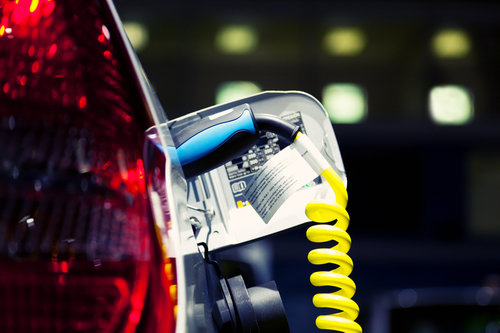
This is also reflected in the worldwide sales of e-cars. There is the rather unknown manufacturer BAIC with his model EC180 in third place. The Chinese model of success at a subsidized price of 7,000 Euro has a range of 200 kilometers, two airbags and ABS standard equipped and the battery lasts seven hours. Only the Tesla Model 3 and the established Nissan Leaf sold better in 2018. German manufacturers such as Daimler or Volkswagen are not represented in the first 20 places. The EC180 and 200 are produced by BJEV, the Beijing Electric Vehicle Company. This in turn is an offshoot of the Chinese carmaker BAIC. As the fifth largest manufacturer in China, numerous joint ventures have already been established, selling around 570,000 vehicles from its own brands in 2017. It is so successful that Daimler acquired four percent of the shares in March 2018 in order to work more closely with the Chinese and to promote joint developments.
Are you working in the automotive sector and you want to export your products to China? We are glad to advise you in the context of the mandatory CCC certificate (China Compulsory Certification (CCC)).
For more information on how CCC certification may affect your company, or for more information about CCC certification in general, the process, and the associated costs, please visit our website and our News Section where you will find current updates twice a week.
Please do not hesitate to contact us for further details and consultation. You can contact us via e-mail, or call us (UK: +44 2071931135, Rest of Europe: +49 69 2713769150, US: +1 773 654-2673).
You can also check out our free CCC-Brochure, which can be downloaded right here as a PDF file or you consult our book (in English) “A Brief Guide to CCC: China Compulsory Certification”, which can be found directly hier on Amazon.
Electric vehicles in India – Volvo on the way to the market leader
The Indian offshoot of the Swedish automotive group, Volvo Cars India, will introduce its first plug-in hybrid vehicle later this year. They also plan to bring another six models to the Indian market. In addition to the hybrid vehicles, Volvo is working on the launch of fully electric cars in 2021. Volvo is a profiteer of an initiative of the Indian government. They had lowered the import tariffs for components of electric vehicles from 15 to 30 per cent to 10 to 15 per cent in the past month. This move has further bolstered Volvo’s plans to locally assemble electric vehicles.
The managing director of Volvo Cars India, Charles Frump, spoke to a car magazine: “It was an important decision of the government to reduce the tariffs for components of electric vehicles. Immediately after the announcement, I came into contact with the head office in Sweden to make further plans clear. “Even before the tariff reduction, Volvo had completed planning for a plug-in hybrid assembly in India, and now they are also considering assembly of fully electric vehicles.“
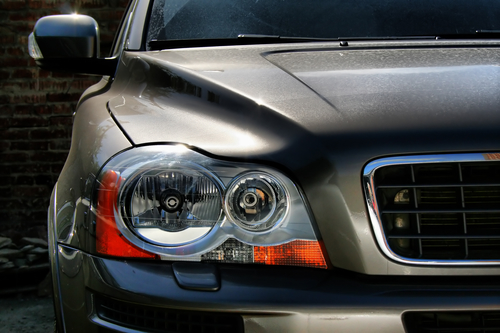
Since 2018 the car manufacturer has an assembly plant near Bangalore. The on-site final assembly made Volvo more competitive in the luxury vehicle market, and now half of the vehicles sold are assembled there. In addition, the company is planning an engine plant in India to benefit from a lower tax, lower prices for their cars, and thus increase profit margins in the luxury car segment. Managing Director Frump also clarified that Volvo’s current focus on vehicle production is the import of CKD kits. Analysts view Volvo’s move to enter the Indian electromobility market positively. One of the main competitors, Mercedes-Benz with its electric SUV model EQ, can enter the market only after Volvo in the next few years. This could give the Swedish carmaker a decisive lead. The automotive market in India is characterized by dynamic growth. The export of products there, especially cars and car parts, in many cases requires a mandatory India certification to the Automotive Industry Standard (AIS). We advise you gladly and comprehensively with the AIS certification for India.
Workshop: China Foreign Trade & Export in Hamburg
On May 14, 2019, the export industry ICS GmbH (Exportwirtschaft ICS GmbH) will hold the “China Workshop: Foreign Trade & Export”. MPR China Certification GmbH will contribute to the event by introducing all participants to the various certifications required in China.
As largest economy in the world and increasing growth rates the People’s Republic of China is both the most important production location and sales market for many industries. Nevertheless, the country has many challenges: Besides differences between the markets in China and the West and the special role of state actors in China, it is the vast certification system in China which should not be underestimated.

Whether or not a particular product needs to be certified remains one of the most common issues for many manufacturers. The most important Chinese certification is the CCC certification, which is similar to the European CE marking. CCC is mandatory for a wide range of products, including toys, safety glass and interior trimming components for automotive use.
For specific product areas there are also other relevant certifications: Telecommunications products may require a SRRC registration and/or NAL certification. Medical products and cosmetics usually require a NMPA registration (formerly CFDA). On the other hand, refrigerators, air conditioners and other energy-intensive appliances may only be imported into China with a valid China Energy Label (CEL). Sometimes, different certifications for a product have to be considered.
The seminar aims to provide detailed instructions and solutions for the strategic and operative China business and does not limit itself to specific product areas. Amongst others, the following topics will be covered: Plant and mechanical engineering, food sector and medical technology.
All interested parties are cordially invited to register with the Exportwirtschaft ICS GmbH for the China Workshop. By making your reservation prior to Apr. 18th, 2019 you will benefit from an exclusive early bird discount! The venue is in Hamburg, Germany.
Further information about the event as well as participation possibilities can be found on the website of Exportwirtschaft ICS GmbH (German).
Since 2005, the MPR China China Certification GmbH has been helping companies around the world obtain CCC (China Compulsory Certification). Further certifications that we can support you with include the Taiwan Certification for automotive components and CEL (China Energy Label). We also offer customs clearance in China.
If you would like more Information regarding CCC certification, please visit our website. Here you can learn more about the certification process and the costs associated with certification. You will also find details regarding our certification package on our website including a general anticipated time frame. Take a look at our references section to see some of our clients and what they are saying about us. For more detailed information please download our free booklet “CCC Made Easy” here. You may also consider our book “A Brief Guide to CCC: China Compulsory Certification”, which can be ordered directly on Amazon here .
New GB standards relating to electromobility
The period for comment on three new GB standards relating to electromobility has recently ended and the standards will soon be approved for publication by the Ministry of Industry and Information Technology. With that the standards will also receive their official names, which have not been determined yet.
The three areas that will be covered by these standards are safety requirements for batteries, electric buses and electric cars.

With regard to batteries, the standard lays out safety requirements for several aspects. In order to fulfill these requirements, various testing procedures are detailed for example relating to over-charging, short-circuiting and overheating. Additionally, there are also different tests regarding external shocks like vibrations, a simulated collision or water immersion.
The standard for battery safety requirements, which is meant to upgrade the existing standards GB/T 31485-2015 and GB/T 31467.3-2015, will come into effect on July 1, 2020. Already certified products have to comply with the new standards by August 1, 2021.
The same timeline will also be used for the new standards for electric buses and electric cars.
Regarding electric buses, the safety requirements and their respective tests revolve around water- and dustproofing, fire protection, structural integrity and safety during the charging process.
The new standard for electric vehicles, which builds on the existing GB/T 18384-2015 standard, focuses on electric shock protection and waterproofing.
You are already active in the Chinese market and want to learn more about how the new regulations affect your business? Then please do not hesitate to contact us. We are happy to advise you on the new regulations in detail and individually for your needs. We also offer original versions of the Chinese regulations as well as translations.
For more information on how CCC certification may affect your company, or for more information about CCC certification in general, the process, and the associated costs, please visit our website and our News Section where you will find current updates twice a week.
Please do not hesitate to contact us for further details and consultation. You can contact us via e-mail, or call us (UK: +44 2071931135, Rest of Europe: +49 69 2713769150, US: +1 773 654-2673).
You can also check out our free CCC-Brochure, which can be downloaded right here as a PDF file or you consult our book (in English) “A Brief Guide to CCC: China Compulsory Certification”, which can be found directly here on Amazon.
China Certification Corporation will be present at the Automotive Interiors Expo in October, 2019 in Novi, Michigan USA
The Automotive Interiors Expo will take place this year from October 22-24, 2019 at the Suburban Collection Showcase in Novi, Michigan. With more than 100 exhibitors the fair showcases the latest vehicle interior technologies and services which are designed to ensure that the highest standards are met in terms of product quality, reliability, durability and safety. China Certification Corporation will be exhibiting at booth A418.
The Automotive Interiors Expo was originally started in Europe in 2012. Since then the show has been an important showcase for all aspects of interior trim attended by production managers, quality managers, design teams and procurement people. It offers solutions by presenting every aspect of automotive interior design, production, raw materials, the latest innovations and product regulation advice. The fair offers the perfect platform to exchange problems, solutions and share insights with industry experts.
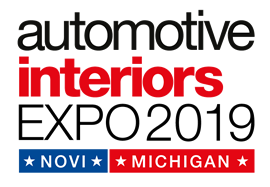
Many interior trim products need a CCC Certification (China Compulsory Certification) for the Chinese market and must be labeled with the CCC logo. At our booth we will provide you more information and answer all your China CCC related questions. Come visit us at our booth A418.
You can find out more about the Automotive Interior Trim Show here.
Besides the Automotive Interior Expo in the U.S. you will also find us with an own booth at the IAA trade show in Frankfurt, Germany. The show takes place from September 12-22, 2019, where we will have a shared a booth with the CCAP (China Certification Centre for Automotive Products Co., LTD.).
For more information on how CCC certification may affect your company, or for more information about CCC certification in general, the process, and the associated costs, please visit our website and our News Section where you will find current updates twice a week.
You are also welcome to call or e-mail us any time.
UK: +44 2071931135 email: info@china-certification.com
Rest of Europe: +49 69 2713769150 email: info@china-certification.com
US: +1 773 654-2673 email: usa@china-certification.com
You can also check out our free CCC-Brochure, which can be downloaded right here as a PDF file or you consult our book (in English) “A Brief Guide to CCC: China Compulsory Certification”, which can be found directly hier on Amazon.
„In Compliance“-Magazine publishes article about changes of the certification obligation of automotive components.
“In Compliance Magazine” published an English-language article on January 31, 2019 about changing the certification obligation of automotive components. The article was written by Julian Busch, Managing Director of China Certification Corporation. The link to the article can be found here.
In June and December 2018, the two Chinese authorities “The State Market Regulatory Administration (SMRA) and” Certification and Accreditation Administration of China “(CNCA) published announcements 11-2018 and 09-2018 of the most important changes, as well as adjustments to the implementing rules for CCC certification.

The changes have been split into two categories and are only relevant for automotive parts. The affected components include brake hoses, fuel tanks and others. To check if your components are affected by this change, you can look here.
Even if your product is no longer required to be CCC certified, it is important to note that automotive parts must continue to comply with applicable Chinese GB standards.
If you have any questions about the new regulations for marking CCC-compulsory products or you need advice on your existing certificates, please do not hesitate to contact us.
For more information on how CCC certification may affect your company, or for more information about CCC certification in general, the process, and the associated costs, please visit our website and our News Section where you will find current updates twice a week.
Please do not hesitate to contact us for further details and consultation. You can contact us via e-mail, or call us (UK: +44 2071931135, Rest of Europe: +49 69 2713769150, US: +1 773 654-2673).
You can also check out our free CCC-Brochure, which can be downloaded right here as a PDF file or you consult our book (in English) “A Brief Guide to CCC: China Compulsory Certification”, which can be found directly hier on Amazon.
Tesla is investing billions in a new plant in Shanghai
In the first week of January, Tesla CEO Elon Musk laid the foundation for the first production facility outside of the United States near Shanghai. The investment will be just over 50 billion yuan and it will create the company’s most advanced gigafactory, Musk told Xinhua News Agency at the opening ceremony. With good local resources, the plant can be built in record time and start producing the Model 3 by the end of the year. In addition to the established entry-level model, the planned crossover SUV Model Y will also be manufactured in Shanghai.
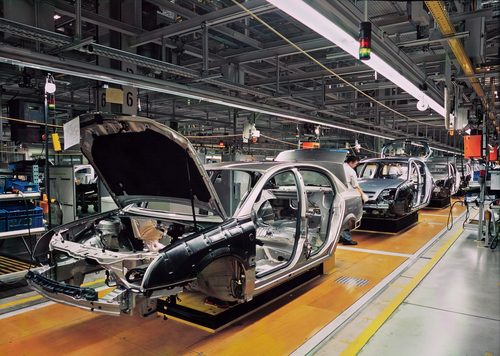
One of the main reasons for settling in China is the cost advantage of eliminating import duties. Thus, the Model 3, which currently costs more than 500,000 yuan in China, can be offered 20 percent cheaper. Moreover, they are also independent of the outcome of the ongoing trade war between the US and China and the associated import or punitive tariffs. The Tesla plant is the largest foreign investment project so far for the Shanghai region and the Lingang industrial park. Novelty is also that Tesla is the first company to benefit from the new rules for foreign carmakers. Recently, the Chinese government has eased restrictions on the involvement of Chinese joint venture partners. So far, at least 50 percent of the shares had to be hold by a Chinese partner, this regulation has now been phased out, from 2018 for electric vehicles, 2020 for commercial vehicles and 2022 for cars with conventional drives.
Tesla purposely calls its production sites “Gigafactories” because all manufacturing steps of electric vehicles take place there. Both, the cars are assembled and the batteries for the electric drive are produced. To date, two of these factories exist in the US and are supplemented by the original Tesla factory in Fremont, California. However, these plants also produce photovoltaic panels and charging stations, and the final stages of assembling the vehicles are completed at the Fremont plant. In the new factory in China, a Tesla automobile is to be completely assembled under one roof for the first time.
Car manufacturers in China also process components from abroad. Are you in the automotive industry and you want to export your products to China? We are glad to advise you in the context of the mandatory China Compulsory Certification (CCC China Certification).
For more information on how CCC certification may affect your company, or for more information about CCC certification in general, the process, and the associated costs, please visit our website and our News Section where you will find current updates twice a week.
Please do not hesitate to contact us for further details and consultation. You can contact us via e-mail, or call us (UK: +44 2071931135, Rest of Europe: +49 69 2713769150, US: +1 773 654-2673).
You can also check out our free CCC-Brochure, which can be downloaded right here as a PDF file or you consult our book (in English) “A Brief Guide to CCC: China Compulsory Certification”, which can be found directly here on Amazon.
Several new GB standards for car homologation announced (CNCA-C11-01:2014)
There have been change of the Chinese national standards (GB standards) in regards to car homologation (e.g. GB 7258-2017) relevant to the implementation rules CNCA-C11-01: 2014. The China Certification Centre for Automotive Products (CCAP) recently published changes to the existing certifications and will need to be considered when updating to the current version.
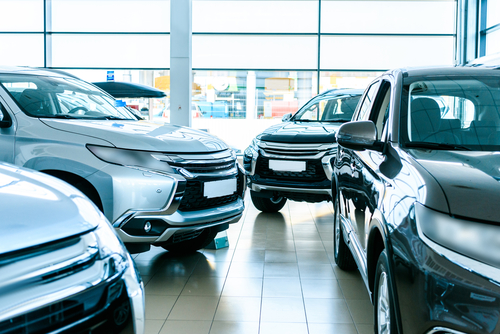
Thirteen GB standards including, but not limited to, GB7258-2012 (“Safety requirements for the use of vehicles”), GB11567-2001 (“Safety requirements for lateral and rear parts of vehicles and trailers”) and GB13094-2007 (“Structural safety requirements of vehicles“) were replaced by ten new GB standards.
| Productname | Old standard | New standard |
|---|---|---|
| Icons for controls, indicators and indicator lights of motor vehicles |
GB 4094-1999 | GB 4094-2016 |
| Control, display and signaling devices | GB/T 4094.2-2005 | GB/T 4094.2-2017 |
| Light distribution performance of fog lights for motor vehicles |
GB 4660-2007 | GB 4660-2016 |
| Safety requirements for the use of motor vehicles | GB 7258-2012 | GB 7258-2017 |
| Safety requirements for lateral and rear parts of vehicles and trailers |
GB 11567.1-2001 GB 11567.2-2001 |
GB 11567-2017 |
| Structural safety requirements of vehicles | GB 13094-2007 GB/T 19950-2005 GB 18986-2003 |
GB 13094-2017 |
| Test methods for the energy consumption and range of electric vehicles |
GB/T 18386-2005 | GB/T 18386-2017 |
| Limits and methods for measuring the intensity of electromagnetic field emissions from electric vehicles |
GB/T 18387-2008 | GB/T 18387-2017 |
| Consumption limit for light commercial vehicles | GB 20997-2007 | GB 20997-2015 |
| Energy labeling for light vehicles Part 1: Gasoline and diesel vehicles |
GB 22757-2008 | GB 22757.1-2017 |
Products that were certified according to the old versions need to be updated. This can be done by submitting a change application to CCAP. If the product, in the meantime, has to undergo tests it will be updated automatically. If you are unsure, please consult us.
Certificate owners are obliged to complete the change as soon as possible. If a certificate will not be updated within the given period it will be deemed out of compliance and eventually cancelled.
If the production of a certified product ended before the announcement there is no update needed… again please feel free to check with us to confirm.
Please get in touch with us if you have any questions regarding the latest changes or need any further information regarding CCC certification. We advise you and support you throughout the China CCC process.
For more information on how CCC certification may affect your company, or for more information about CCC certification in general, the process, and the associated costs, please visit our website and our News Section where you will find current updates twice a week.
Please do not hesitate to contact us for further details and consultation. You can contact us via e-mail, or call us (UK: +44 2071931135, Rest of Europe: +49 69 2713769150, US: +1 773 654-2673).
You can also check out our free CCC-Brochure, which can be downloaded right here as a PDF file or you consult our book (in English) “A Brief Guide to CCC: China Compulsory Certification”, which can be found directly here on Amazon.



